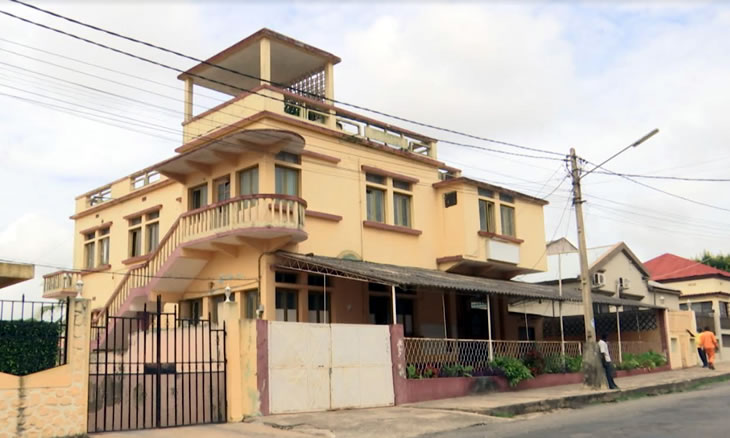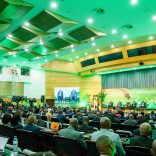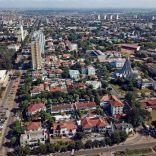Mozambique: President leads opening of Land Consultation Forum - Watch
A 20-year-long property dispute seems to have reached uncharted legal territory in Nampula

The house is located in the centre of Nampula city. [Photo: O País]
In Nampula, a case involving a citizen and a commercial group in a property dispute has been in court for more than 20 years. Last year, the plaintiff won a Supreme Court decision, but the other party to the case has yet to give up the property in dispute.
The disputed property is located in Nampula city centre, and was a hotel a restaurant during the time it was managed by Maria Olinda, who had had a lease with the State Building and Property Administration (APIE), since 1994.
Also read: Mozambique: Only 4,600 of the 70,000 properties nationalised 44 years ago are still in state hands
In the mid-90s, she decided to pass a power of attorney to a businessman for the exploration of the space, from which time on began a long history involving changes in the contract and the signing of another one between APIE and a commercial group identified by Companhia Has-Nur, Lda.
“When I went to pay the APIE rent, the names had been switched, and it [the contract with APIE] was already in the name of Companhia Comercial Has-Nur,” Maria Olinda revealed.
The matter gave rise to a case in the Judicial Court of the Province of Nampula for the annulling of the contract concluded in absentia of one of the interested parties. A 2014 sentence from the [Nampula court’s] 2nd Civil Section, upheld the request and the court decided in favour of the complainant, to whom it restored the property.
“The other party was not satisfied and filed an appeal at the Superior Court of Appeal, which was also rejected; it went on to the Supreme Court, the last instance, [where it] also fared poorly, and last year, the Supreme Court gave orders for the hand-over of the property.”
With the ruling of the Supreme Court, Maria Olinda was convinced that everything was over, especially since it was through an order of the Judicial Court of the Province of Nampula that in mid-February this year that the execution of the delivery of the property took place, in the presence of bailiffs and police officers.
But her happiness was short-lived because a few days later a lawyer from the other party in the case appeared, supposedly blocking the access to the building.
“On a Friday, almost at the end of the office hours, he shows up with the Has-Nur family, which is the same family as Al-Sude, with two officers from the Third Section of the Court and some police officers, and they started threatening me and saying that I had to hand over the property,” Maria Olinda relates.
A “hand over” which was reportedly not decided by any court, and which may have been carried out under psychological constraint due to the presence of police officers.
Maria Olinda had not yet acquired the property from APIE and intended to proceed with that process now that she had got it back.
Our reporter contacted the other party’s lawyer and he declined to comment on the case.
Meanwhile, it remains unknown how and what grounds a decision of the Supreme Court can legitimately be called into question by a lower court, given that ‘the Supreme’ necessarily stands at the top of the hierarchy of judicial courts in Mozambique, and its rulings are by definition unappealable .
Furthermore, if disobedience to any such ruling is proven, those involved may be guilty of the crime of…disobedience.
By Ricardo Machava













Leave a Reply
Be the First to Comment!
You must be logged in to post a comment.
You must be logged in to post a comment.